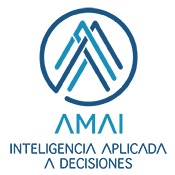Stay connected
Be the first to know about new programs, upcoming events, or other exciting opportunities happening at the University of Georgia by joining our mailing list.
Discover the power of market research.
Free archived webinars: practical insights, real-world impact.
About this course
Learning objectives
After completing this course, you should be able to:
- Explain the multiple steps in designing a questionnaire and the guidelines that should be followed at each step.
- Explain how the choice of data collection method and whether using an interviewer or self-administered format influences questionnaire design.
- Describe potential sources of bias in developing a questionnaire and how to minimize them.
- Describe the methods questionnaire writers use to engage participants, encourage response, and make the survey-taking experience more enjoyable.
- Describe the key issues to consider when designing questionnaires for mobile devices.
- Identify the best practices for designing observational forms of data collection.
- Discuss the primary scales of measurement and differentiate among nominal, ordinal, interval, and ratio scales. Be able to select the most appropriate scale(s) based on analytic requirements.
- Classify scaling techniques as comparative and noncomparative, and describe the comparative techniques of paired comparison, rank order, and constant sum.
- Describe the noncomparative scaling techniques distinguishing between continuous rating scales and itemized rating scales. Identify two commonly used itemized scales: Likert and semantic differential.
- Discuss the criteria used for scale evaluation, and how to assess reliability and validity.
- Discuss the use of software for designing questionnaires.
- Discuss the considerations involved in designing questionnaires and implementing scaling techniques for global research.
- Explain the ethical issues related to questionnaire design and measurement scales.
Who should attend?
- Entry-level researchers seeking a general understanding of questionnaire design and the guidelines that should be followed.
- Market researchers in client-facing roles looking to advance their careers.
- Client-side researchers responsible for all phases of the project (including questionnaire design) to ensure that it meets the needs of the organization.
- Mid-level staff seeking to understand which questionnaire design approaches they could benefit from using.
- Experienced researchers looking to catch up with the latest developments.
- Corporations seeking professional development options for their internal training portfolio.
- Suppliers seeking courses for new-employee onboarding.
- Analysts seeking to understand the pros and cons of questionnaire design approaches and best practices.
Continuing Education Information
Students successfully completing graded components earn a Digital Badge and 1.0 University of Georgia Continuing Education Unit (Opens in a new window) (CEU) from The University of Georgia.
As a graduate of the course, become recognized by industry associations, employers, peer groups and other professionals as understanding research findings and translating them into reports and presentations that address the business needs for your client.
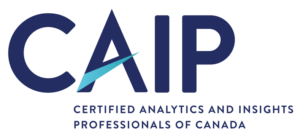
CAIP Canada (Opens in a new window) also recommends the course for candidates looking to fill in the gaps or gain a refresher in specific areas.
Requirements & policies
Schedule
Enroll at any time and complete the course’s required graded components within 30 days.
Fees & funding information
$359 – Standard Fee
$329 – Association Discount (Members* of: Insights Association; ESOMAR; Canadian Research Insights Council, The Research Society, Intellus Worldwide, QRCA, AMAI, WAPOR-Latinoamérica, MRII Board of Directors, UGA MMR Advisory Board.)
$50 – One-Month Extension (only one extension is granted per participant)
*Membership will be verified.
Prepayment is required to be registered. The prices listed are per person (US Funds).
Cancellation or refund
We will issue a refund, minus a $100 processing fee, if you have not accessed the online course. All cancellation and refund requests must be sent via email to gc-student@uga.edu no later than seven (7) days after your course access information is issued.

Technology
Take advantage of the different features (PDF files, URLs/links to external websites, animated exercises, audio and video clips) you should use a browser such as Chrome (Opens in a new window), Firefox (Opens in a new window), Microsoft Edge (Opens in a new window), or Safari (Opens in a new window) and a fast internet connection provide the best experience. The online platform supports many popular web browser versions. To find out if your computer’s current software configuration is compatible, see System & Software Requirements (Opens in a new window).
Prerequisites
There are no prerequisites for enrolling in the course.
Textbooks
There are no textbook requirements for this course.
People & organizations
Instructors
David Ashley manages the Human Capital Data Analytics Division for the U.S. Department of Homeland Security, overseeing analytics for its 200,000-person workforce. His prior roles include FEMA, U.S. Customs and Border Protection, and the U.S. Small Business Administration. He teaches at George Washington University and the University of Maryland and authored a market research textbook. He holds degrees from UNC and UNM. Visit David’s LinkedIn profile.

Jeffrey Henning, IPC, former Executive Director of the Market Research Institute International (MRII), is a recognized expert in quantitative market research with over 30 years of experience. A serial entrepreneur, he co-founded Perseus Development Corporation and Vovici and founded Researchscape International. He is an Insights Association and AAPOR member and was the first recipient of the MRA’s Impact award. Visit Jeffrey’s LinkedIn profile.

Stephen Kraus, Ph.D. is an Assistant Professor of Marketing at the University of San Francisco and former Executive Director of MRII. A leading expert in consumer insights and digital trends, he is the author of three books and a TEDx speaker. He has received teaching awards at USF. Visit Stephen’s LinkedIn profile.

Supporting associations
Founding Organizations
Proud Corporate Sponsors of MRII
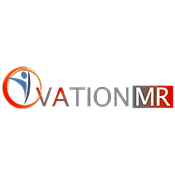 (Opens in a new window)
(Opens in a new window) (Opens in a new window)
(Opens in a new window) (Opens in a new window)
(Opens in a new window) (Opens in a new window)
(Opens in a new window) (Opens in a new window)
(Opens in a new window)
 (Opens in a new window)
(Opens in a new window)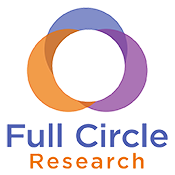 (Opens in a new window)
(Opens in a new window) (Opens in a new window)
(Opens in a new window) (Opens in a new window)
(Opens in a new window) (Opens in a new window)
(Opens in a new window) (Opens in a new window)
(Opens in a new window) (Opens in a new window)
(Opens in a new window) (Opens in a new window)
(Opens in a new window) (Opens in a new window)
(Opens in a new window) (Opens in a new window)
(Opens in a new window) (Opens in a new window)
(Opens in a new window)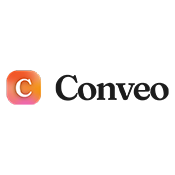 (Opens in a new window)
(Opens in a new window)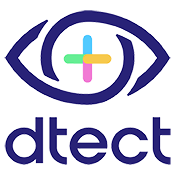 (Opens in a new window)
(Opens in a new window) (Opens in a new window)
(Opens in a new window) (Opens in a new window)
(Opens in a new window) (Opens in a new window)
(Opens in a new window) (Opens in a new window)
(Opens in a new window) (Opens in a new window)
(Opens in a new window)Supporting Organizations
Prices, course details, dates, and times are subject to change.
Contact us + FAQs
FAQs
View the most frequent questions asked by our learners
Financial and Military Assistance
Find out which programs are eligible for assistance
Accommodations
View our accommodation policy









